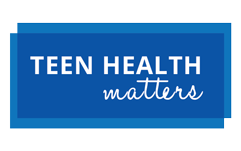Let’s be honest, Human Immunodeficiency Virus, or HIV, isn’t the first topic that would come up in your typical conversation. In most cases, it’s the last thing people want to talk about. Why is this? Could it be the general confusion of the disease? Does talking about STIs in general make people uncomfortable? Or both? One thing that’s for sure is contracting HIV is a serious life changer.
HIV is a lifelong disease that can make a person sick and cause death.The disease damages the immune system, making it hard for your body to fight infections. The reason for this is that the virus slowly destroys blood cells — CD4 helper lymphocyte (CD4 cells) to be exact– that are crucial to a normally functioning immune system. HIV can progress to Acquired Immunodeficiency Syndrome (AIDS). What this means is the CD4 cell count has been greatly reduced or the person has certain types of infections. Because of the slow progress of HIV to AIDS, individuals may not know that they have the disease and can unknowingly spread the virus to others. The only way to know is to get tested for HIV. There are treatments available for HIV and AIDS.
You can reduce your risk of getting HIV by doing the following:
- Practice safe sex by using condoms or practice abstinence (choosing not to have sex at all or until a certain time). You can contract HIV at any age, so it is important to use condoms correctly every time you hav anal, vaginal, or oral sex.
- Know your status. It is important for you and your partner to know our HIV status so you don’t run the risk of infecting others. Even if you practice safe sex or abstinence, HIV can still be transmitted through sharing needles or syringes. It’s better to be safe than sorry. Get tested!
- Tell your sexual partner if you have HIV. It’s important to tell anyone with whom you’ve had or are currently having sex with that you are HIV-positive. Your partner should be tested and then receive medical care if they have the virus.
- If you’re pregnant, get medical care right away. A woman infected with HIV can also transmit it to her child through pregnancy, childbirth, or breastfeeding.
For more information on HIV prevention, click here.
Prevention is better than infection, especially when there’s no cure.
As simple as it sounds, there can be some challenges and that’s understandable. As previously stated, HIV isn’t an everyday conversational topic, so it’s important to know how to have a healthy conversation about it. Here are some tips to keep in mind when having the conversation with someone close to you:
- Be casual when bringing it up. For example: Hey, I was wondering… I was thinking…
- Be clear on what direction you and your partner want to take the relationship. A mutual understanding of where the relationship will go and if it will become intimate is important for bouth of you to know in advance.
- Be inclusive. Don’t come off as if you’re accusing your partner. Use plural pronouns like “we” or “us”.
- Knowledge is key with this kind of conversation. Know what you’re talking about.
- Make sure you are comfortable with having the conversation. If you aren’t comfortable, then your partner won’t be either.
For more information about HIV/AIDS, visit the Centers for Disease Control and Prevention (CDC) website. You can also call the Howard County Health Department at 410-313-7500 to schedule a free and confidential appointment. To find other locations for testing, visit the TeenHealthMatters.org.
